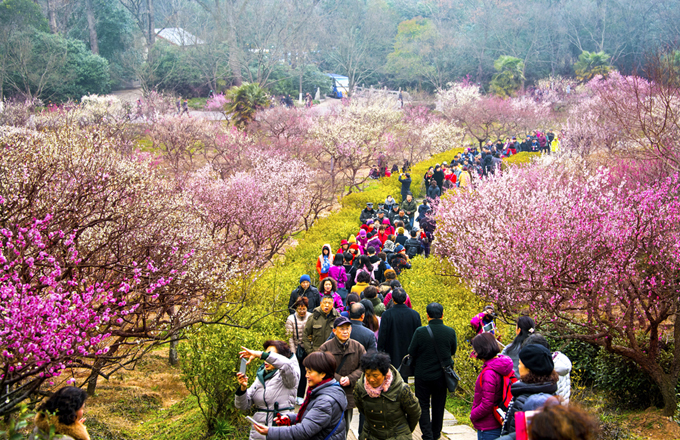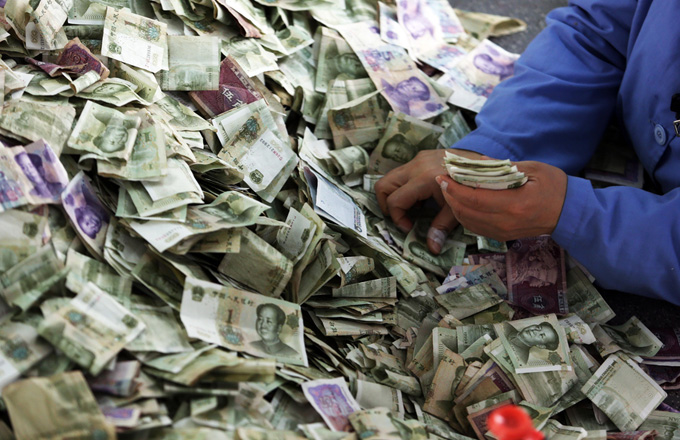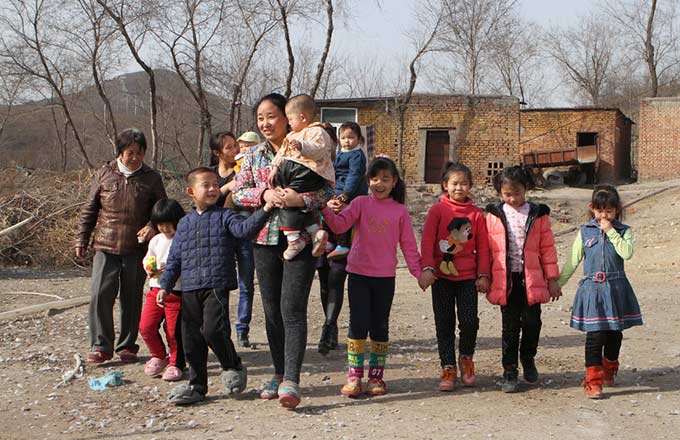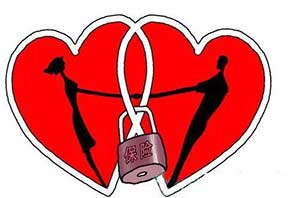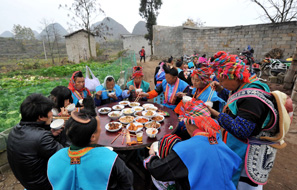Thriving Shenzhen tells tale of old man and the city
CHANGE OF POLICIES
Deng Zhibiao often recalls the poverty in the 1970s and being offered bread and soda water that had come from neighboring Hong Kong.
"I dared not eat them!" he said. "They were products of capitalism."
Shenzhen's poverty made many of the villagers to attempt to sneak into Hong Kong.
"We fished in the Shenzhen River. Many fishermen didn't come back," said Deng Zhibiao. "Among more than 70 households, about 30 left."
Deng Xiaoping visited Guangdong in 1977. Three years later, Shenzhen became a special economic zone, an area where special business policies were experimented with.
Deng Zhibiao started buying second-hand cars in Hong Kong to sell in Shenzhen.
"Before the reform I couldn't do that. It was called capitalism."
By 1980, many people in Yumin Village had televisions, fridges, stereos and electric cookers -- all luxuries at that time. While other Chinese citizens earned less than 100 yuan (about 14.6 U.S. dollars) a month, the average annual household income in the village exceeded 10,000 yuan.
By 1985, the villagers had started factories making clothes, watches and jewelry. Businesses in Hong Kong were soon investing in Shenzhen.
HEATED DEBATE
Huaqiangbei, a sub-district in the city center of Shenzhen, used to be a congregation of manufacturers.
"At first they made electronic devices. Shenzhen Electronics Group (SEG) came into being in 1986 when they needed a market to buy components," said Hu Jianping, vice general manager of SEG.
Following SEG, more companies were founded and Shenzhen started to take shape as a manufacturing hub. "The then Ministry of Electronics Industry provided experts; the city government of Shenzhen gave us land and exempted our taxes," Hu said.
However, the development was not all plain sailing.
"From a planned economy to a market economy, the model for SEG invited dispute," he said.
Chen Xitian, 76, former vice editor-in-chief with the Shenzhen Special Zone Daily, said that reform and opening up were stagnating at the beginning of the 1990s when the world saw serious setbacks in socialist movement in the former Soviet Union and eastern Europe.
"In China, there were heated discussions about socialism or capitalism," Chen said.
Deng's 1992 southern tour brought the debates to an end.
"A planned economy is not just socialism as there is also planning under capitalism; a market economy is not just capitalism as there are also markets under socialism," he said.
After that, Deng Zhibiao's village was converted into a joint stock company.
Hu Jianping, then 30, quit his job as a teacher in northwest China's Shaanxi Province and went to Shenzhen.
SEG started manufacturing mobile phones.
"At the height of its prosperity, about 70 percent of the world's mobile phones were made in China, while 80 percent of China's mobile phones were from Huaqiangbei," Hu said.




